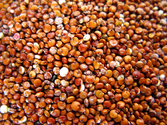-
About
- About Listly
- Community & Support
- Howto
- Chrome Extension
- Bookmarklet
- WordPress Plugin
- Listly Premium
- Privacy
- Terms
- DMCA Copyright
- © 2010-2025 Boomy Labs

 Alison D. Gilbert
Alison D. Gilbert
Listly by Alison D. Gilbert

In light of the recent public anger over the Monsanto Protection Act, here's a simple, printable list of companies that use Monsanto products. By avoiding products made by companies on this list, you can help ensure your money isn't going to Monsanto and also watch out...
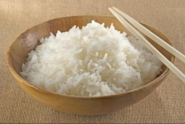
Recently the debate over genetically modified (GMO) foods has heated up again. In just the past few weeks, articles about GMOs have appeared in Slate, the New York Times, and Grist. And over the weekend New York Times writer Amy Harmon wrote again of the saving graces of genetically engineered foods, this time citing " Golden Rice " as a clear example of the life saving abilities of GMOs.

Salmon is rich in vitamin D and which can helps to reduce the heart diseases, cancer, cardiovascular diseases,high blood pressure and boost your mood. Now a days doctors suggest omega-3 fatty acids,who are suffering with heart diseases,obesity,cancer.Omega-3 can protect our brain from Alzheimer's.It is preferable to take fish twice in a week.You should bake or grill the fish to avoid unhealthy fats.
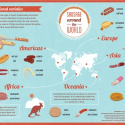
Sausage is an internationally popular type of meat, traditionally consisting of ground pork or beef encased in animal intestine. It can be eaten fresh

(NaturalNews) One young girl's fight to keep her small vegetable garden, which had previously been threatened for elimination by a subsidized housing complex funded by the U.S. Department of Agriculture's (USDA) Rural Development Agency, has ended in victory.
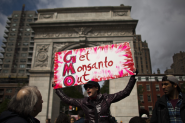
The list of Monsanto's economic, agricultural, chemical and biological wrongs is virtually endless. A recent study completed by the Food and Water Watch details Monsanto's controversial chemical past, which includes the creation of numerous superfund sites and the U.S.'s largest-ever chemical disasters-just to name a couple.
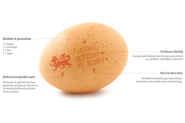
Proposed legislation would introduce an 'eggs from caged hens' label, allowing consumers to face the facts in the grocery store. Twilight Greenaway Twilight Greenaway is an Oakland-based writer and editor who has been working on the web since 2000. Full Bio Follow Me

The geography of American food insecurity is moving out of the cities and into the cul-de-sac. Steve Holt Steve Holt writes about food for Edible Boston, Boston Magazine, The Boston Globe, and elsewhere. Full Bio Follow Me

A growing number of organic consumers, natural health advocates and climate hawks are taking a more comprehensive look at the fundamental causes of global warming. And its led them to this sobering conclusion: our modern energy-, chemical- and genetically modified organism (GMO)-intensive industrial food and farming systems are the major cause of man-made global warming.

Americans are speaking out en masse-but will legislators and corporations listen? Steve Holt Steve Holt writes about food for Edible Boston, Boston Magazine, The Boston Globe, and elsewhere. Full Bio Follow Me
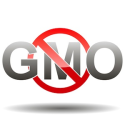
In the very short time since GMO foods were first introduced, they have tainted ecosystems, created financial strains for farmers, and introduced unnatural elements into the local, national, and global food supply. GMOs pose a danger to all of us and the evidence is irrefutable.
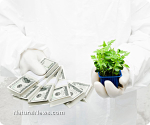
(NaturalNews) It's called the Trans Pacific Partnership (TPP), and it's a super secret trade pact being negotiated completely outside of law, with no congressional authority but with the aim of forcing nations around the world to ban GMO labeling, embrace Monsanto's GMO crops and keep pharmaceutical prices artificially high to enrich the world's medication monopolists.

While the world's population continues to grow at an alarming rate, water is becoming an increasingly scarce commodity. The Swiss film "Bottled Life" documents the booming business with bottled water, by focusing on the global leader in this lucrative multi-billion dollar market - namely, the Nestlé corporation in Switzerland.
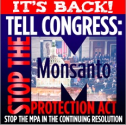
Once again, Monsanto and the biotech industry are working behind closed doors to undermine your basic rights.

Ask most people how they feel about grocery shopping, and they may talk about the supermarket they'll never set foot into, where it smells bad and the produce looks pitiful, or the sunny one with nice cuts of meat and good prices on children's cereal.

Watch "The Scarecrow," the companion film for Chipotle's new app-based game. Then download the free app at www.scarecrowgame.com and join the quest for wholesome, sustainable food. The song "Pure Imagination" performed by Grammy Award®--winning artist Fiona Apple, is available for download on iTunes.

This week, police in Xi'an province reported that they had found and seized more than 22 tons of fake beef at a local factory. Get this: the "beef" was actually made from pork (which is considerably cheaper than beef) that had been treated with chemicals including paraffin wax and industrial salts to make it look like it came from a cow.
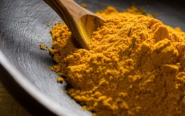
When we talk about eating foods for their specific health benefits, many people think simply eating the food is enough. For instance, if you struggle with inflammatory bowel disease and have read that turmeric is effective in healing many digestive issues, you may simply get a turmeric (curcumin) supplement to start taking.

The shocking minutes relating to President Putin's meeting this past week with US Secretary of State John Kerry reveal the Russian leaders "extreme outrage" over the Obama regimes continued protection of global seed and plant bio-genetic giants Syngenta and Monsanto in the face of a growing "bee apocalypse" that the Kremlin warns "will most certainly" lead to world war.
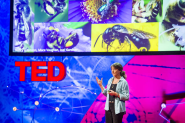
Honeybees have thrived for 50 million years, each colony 40 to 50,000 individuals coordinated in amazing harmony. So why, seven years ago, did colonies start dying en masse? Marla Spivak reveals four reasons which are interacting with tragic consequences. This is not simply a problem because bees pollinate a third of the world's crops.

Honeybees have thrived for 50 million years, each colony 40 to 50,000 individuals coordinated in amazing harmony. So why, seven years ago, did colonies start dying en masse? Marla Spivak reveals four reasons which are interacting with tragic consequences. This is not simply a problem because bees...

Despite a strong and vocal opposition, genetically engineered (GE) Roundup-resistant alfalfa was approved in late 2011. At the time, many environmental and organic experts spoke out against it, warning that its approval could be devastating not just for the environment in general, but also for conventional alfalfa growers, and organic farmers in particular.

